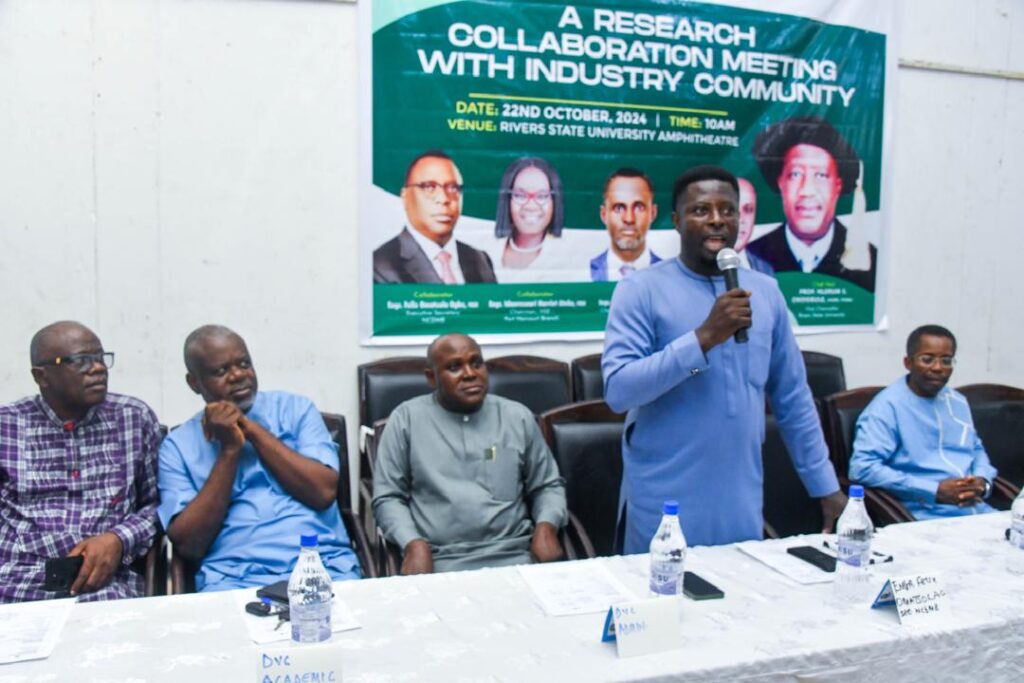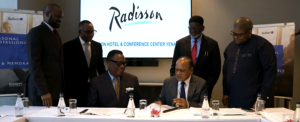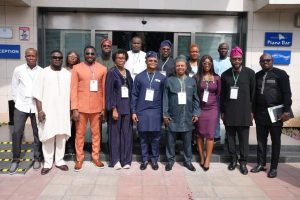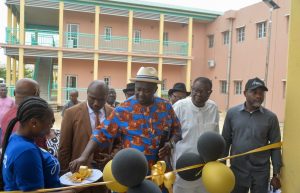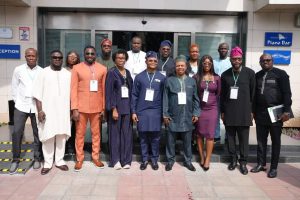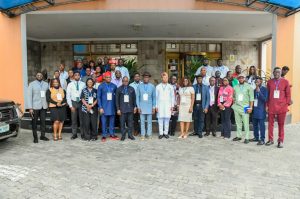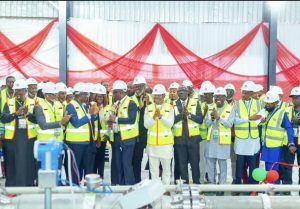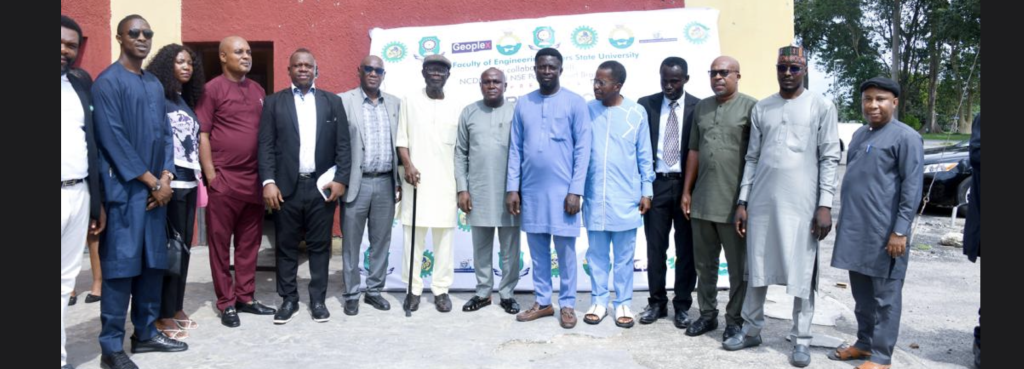
The Nigerian Content Development and Monitoring Board (NCDMB) on Tuesday at the Rivers State University, Port Harcourt, challenged the academia and industry to explore mutually beneficial initiatives that would enhance in-country value addition and minimise the incidence of capital flight.
Speaking on the theme “The Power of Collaboration: Driving Innovation through Industry-Academia Partnerships,” at the first-ever Research Collaboration Meeting at the institution, attended by industry stakeholders from oil and gas, Manufacturers Association of Nigeria (MAN), Engineering and Technology faculty members, as well as the Nigerian Society of Engineers (NSE), the Executive Secretary of NCDMB, Engr. Felix Omatsola Ogbe, observed that “Industry and academia have complementary strengths to be harnessed.”
The NCDMB boss, who was represented by the Acting Manager, Planning Research and Statistics (PRS), Mr. Anthony Woyengidi, noted that partnerships bridge the gap between theoretical research and practical application, and that such endeavours promote innovations which “lead to cutting-edge solutions.”
Engr. Ogbe pointed out that industry continually faces challenges whose solutions lie in research, recalling the trend in the petroleum industry before the enactment of the Nigerian Oil and Gas Industry Content Development (NOGICD) Act, 2010, when companies always transferred such research projects to institutes and experts in their home countries and thus deprived Nigeria of the economic benefits.
Collaboration between academia and industry, according to him, is to ensure that such challenges stimulate research activities that yield solutions locally and thus conserve resources within the country.
On models of industry-academia collaboration, he highlighted ‘Sponsored Research’ under which industry funds research initiatives, and establishment of research Centres of Excellence under which the NCDMB has undertaken the construction of six at Niger Delta University, Amassoma; Federal University of Technology, Akure; Federal University of Technology, Owerri; Federal University of Technology, Minna; Modibbo Adama University of Technology, Yola, and Usman Dan Fodio University, Sokoto.
Other models include ‘Consulting Projects,’ which entails academics providing insights and problem-solving support, and Internship/Training Prgrammes. In the latter model, students are made to work on real-world industry projects.
On NCDMB’s success story in collaborative engagements, Engr. Ogbe said the Board recorded a huge success in a joint capacity building project with Federal University of Petroleum Resources, Effurun, Delta State, where it deployed SEPAL Enterprise Software Suite acquired from an indigenous firm, CypherCrescent Limited.
Also, a learning management system was developed by Argyle IT and the Education Engineering Department of Niger Delta University under sponsorship by the Board to aid students in their studies.
On the Board’s Research and Development journey thus far, the Executive Secretary noted that the goals of the NCDMB are thoroughly aligned with stipulations of the NOGICD Act as relates to R&D, and that they have been clearly defined in terms of scope and requirements.
He highlighted sustainable funding through the Board’s $50 million provision for research and commercialisation of research breakthroughs, pointing out that the fund has been accessed and utilised by many indigenous firms in the oil and gas industry.
He said as the Board works toward fulfilment of the 70 per cent target for Nigerian Content in 2027 in line with its 10-Year Strategic Roadmap, it would continue to give adequate support to all efforts in collaborative research aimed at indigenous capacity-building.
Earlier in an address, the Vice Chancellor of the University, Professor Nlerum S. Okogbule, thanked the NCDMB for facilitation of some capacity-building programmes in the institution and for promoting academia-industry collaboration, noting that the institution was originally established as a university of science and technology to provide solutions to local environmental challenges.
Speaking through a representative, Professor P. Ede, he said, “The impact of Engineering must be felt; this is why a forum [Collaboration Meeting] like this with industry and government is very important.”
In a presentation at the event, the Chief Executive Officer of Geoplex, Engr. Akintunde Fadare, commended NCDMB for fostering collaboration, and also for support received by his company and other indigenous oil and gas industry firms. According to him, “We [Geoplex] are a child of the NCDMB initiative.”
He said indigenous technology was vital and that research efforts must be stepped up because of the critical importance of oil and gas to Nigeria and the fact that countries in the industrialised world are de-emphasising oil and gas-related research and technology as they focus on renewable energy.
He assured that Geoplex would give maximum support to the push for academia-industry collaboration.
In another presentation, the General Manager, Gas Division, Petro-Base Limited, Dr. Godswill Alubari, expressed his confidence that the research collaboration meeting has started well and would yield great results, pointing out that every great achievement or business venture had a small beginning.
He challenged the academia and industry to address their research endeavours to some emerging challenges as Nigeria seeks to deepen the use of compressed natural gas (CNG). He expressed dismay that foreigners are all over that subsector as key actors, which does not augur well for the country.
Dr Alubari stated his wonder aloud: “What can this Collaboration Meeting do [for instance] on conversion kits?” even as he declared his confidence in the ability of Nigerians to achieve results.
Discover more from Nigerian Content Development & Monitoring Board
Subscribe to get the latest posts sent to your email.
